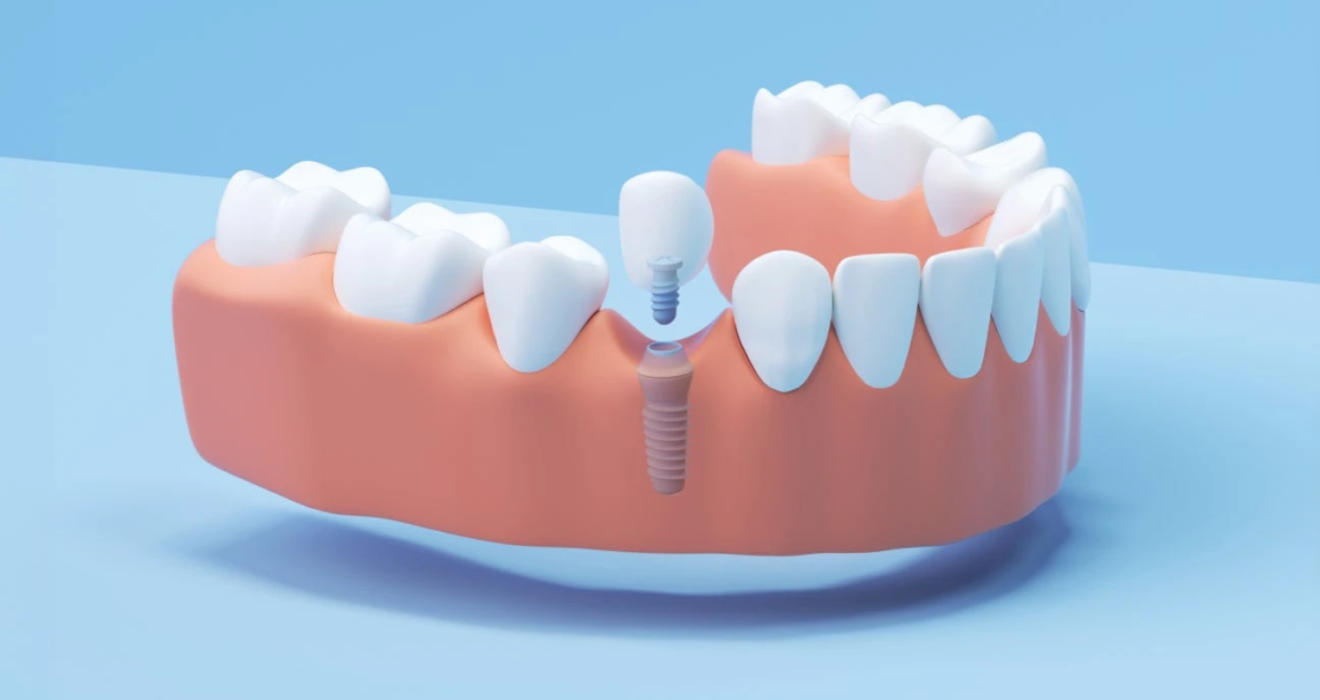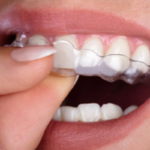Why Dental Implants Are the Best Dental Restoration Solution for Older People?
Ageing brings wisdom, cherished memories, and, unfortunately, sometimes dental challenges. For many seniors, losing teeth can affect everything from eating to speaking and even self-confidence.
But there’s good news: dental implants offer a durable, secure solution that lets you enjoy life without worrying about missing teeth.
Wondering if implants are right for you or a loved one? Let’s explore why dental implants for seniors are fast becoming the top choice in dental restorations.
What Are Dental Implants and Why Do They Matter?
Dental implants are small, titanium posts placed into the jawbone, mimicking natural tooth roots. They serve as a stable foundation for replacement teeth, whether a single tooth, a bridge, or even full dentures. Unlike traditional dentures, dental implants fuse with your jawbone, ensuring a secure fit and promoting better oral health.
For seniors, this means you get a natural feel, lasting support, and no slipping or discomfort—a game-changer for anyone seeking a reliable and comfortable dental solution.
Benefits of Dental Implants for Older People
So, why are dental implants ideal for seniors? Here’s how they stand out:
- Durability: Implants are designed to last for decades, making them a long-term solution. When maintained well, they often don’t require frequent replacements, unlike dentures or bridges.
- Natural Feel and Look: Implants closely resemble real teeth in both appearance and feel. They integrate into the bone, providing stability and a natural look, helping you smile confidently.
- No Dietary Restrictions: With implants, seniors can enjoy their favourite foods without worry. The solid support provided by implants allows you to chew naturally, avoiding dietary compromises common with other restorations.
- Enhanced Comfort: Say goodbye to the discomfort of ill-fitting dentures! Implants remain securely in place, allowing seniors to speak, laugh, and enjoy activities without adjustments or slipping.
- Improved Speech: Missing teeth and loose dentures can sometimes cause speech difficulties. Dental implants stay firmly in place, supporting natural speech patterns.
- Boosts Oral Health: Implants stimulate the jawbone, preventing bone loss and preserving your facial structure—critical for maintaining a youthful look.
Each of these benefits makes implants a fantastic choice, especially when comfort, durability, and confidence are priorities.
Why Choose Implants Over Traditional Dentures?
Both dental implants and dentures serve the same purpose, but they’re vastly different in terms of comfort, care, and long-term effectiveness. Let’s break down why implants may be the better choice for seniors.
- Stability and Functionality
Unlike dentures, which may slip or require adhesive, implants are anchored into the jaw, providing unmatched stability. They function more like natural teeth, making eating and talking easy. - Easy Maintenance
Dentures need special cleaning, and adhesives can sometimes be uncomfortable. In contrast, dental implants are maintained like regular teeth—brushing, flossing, and regular dental check-ups are all you need. - Reduced Bone Loss
Dentures don’t stimulate the jawbone, leading to bone loss and a change in facial structure. Implants, however, stimulate the bone and help retain facial shape, reducing the “sunken-in” look often seen in long-term denture wearers. - Fewer Visits to the Dentist
Dentures may need relining or replacing over time. Implants are a more permanent solution, so while initial visits for placement are necessary, they don’t demand the ongoing adjustments that dentures do.
For seniors seeking a more reliable, natural-feeling solution, implants clearly have the edge.
What Makes You a Good Candidate for Dental Implants?
While implants are an excellent choice for many, some factors can affect eligibility. Here are key aspects to consider:
- Jawbone Density: Dental implants need a strong jawbone foundation. If bone density is low, options like bone grafting can help.
- Overall Health: Conditions like diabetes or osteoporosis can affect healing. Your dentist will assess these to ensure safe implant placement.
- Non-Smokers Preferred: Smoking can delay healing and affect implant success. Non-smokers, or those willing to quit, generally see better results.
It’s essential to discuss any health conditions with your dentist to ensure the procedure will be both safe and successful.
How Long Do Dental Implants Last?
Dental implants are built to last a lifetime, given proper care and maintenance. While the crown or prosthetic might require replacement after 15–20 years due to wear, the titanium post itself is highly durable.
For seniors, the long-term nature of implants offers peace of mind. There’s no need to worry about replacing or adjusting them frequently, making them a low-maintenance solution that’s ideal for anyone wanting to avoid repeat dental visits.
The Implant Procedure: What to Expect
Understanding the implant process helps ease any concerns and ensures a smooth experience. Here’s a quick overview:
- Consultation and Planning
The dentist will conduct a detailed oral examination, possibly with X-rays or scans, to evaluate bone density and overall oral health. - Surgical Placement
The titanium post is carefully placed in the jawbone. Local anaesthesia or sedation ensures you’re comfortable, and the surgery itself is straightforward. - Healing and Osseointegration
Over the next few months, the implant fuses with the jawbone, forming a stable bond—a process called osseointegration. A temporary crown may be placed during this phase. - Final Crown Placement
Once healed, a permanent crown or bridge is attached to the implant, giving you a complete, natural-looking smile.
Implants require several steps, but each one brings you closer to the confident, fully restored smile you deserve.
How to Care for Your Dental Implants?
Implants may feel natural, but they still require diligent care. Here’s how to keep them in top condition:
- Daily Brushing and Flossing: Clean around the implant area just like natural teeth.
- Regular Dental Check-Ups: Routine visits help monitor implant health and ensure gums stay healthy.
- Avoid Hard Foods: While implants are durable, biting down on hard foods like ice can still damage the crown.
Taking care of implants doesn’t add extra work but offers a long-lasting smile you can enjoy daily.
The Transformative Impact of Dental Implants on Seniors’ Lives
Dental implants don’t just restore teeth; they transform lives. Here’s how they make a difference:
- Renewed Confidence: A beautiful, stable smile can boost confidence in social situations.
- Enhanced Nutrition: With full chewing ability restored, seniors can enjoy a varied, nutritious diet.
- Improved Overall Health: Better dental health contributes to overall well-being, making implants an investment in a healthier, happier life.
If you’re considering dental implants for yourself or a loved one, remember they’re more than just a cosmetic fix—they’re a pathway to a higher quality of life.
Is It Time for You to Consider Dental Implants?
As we age, our dental needs change, and sometimes, losing teeth is part of that journey. But it doesn’t have to impact your lifestyle or confidence. Dental implants provide a durable, comfortable solution that adapts to you, not the other way around.
Ready to restore your smile? Contact trusted cosmetic and restorative dentist near you to explore how dental implants can transform your life. Whether it’s better chewing, clearer speech, or a full smile, implants offer seniors a safe, lasting solution.
Choosing the best dental restoration is a big decision, but it’s one that can bring comfort, health, and confidence to your daily life. Dental implants for seniors offer just that—reliable support, natural aesthetics, and a path to enjoying every moment without worry.



